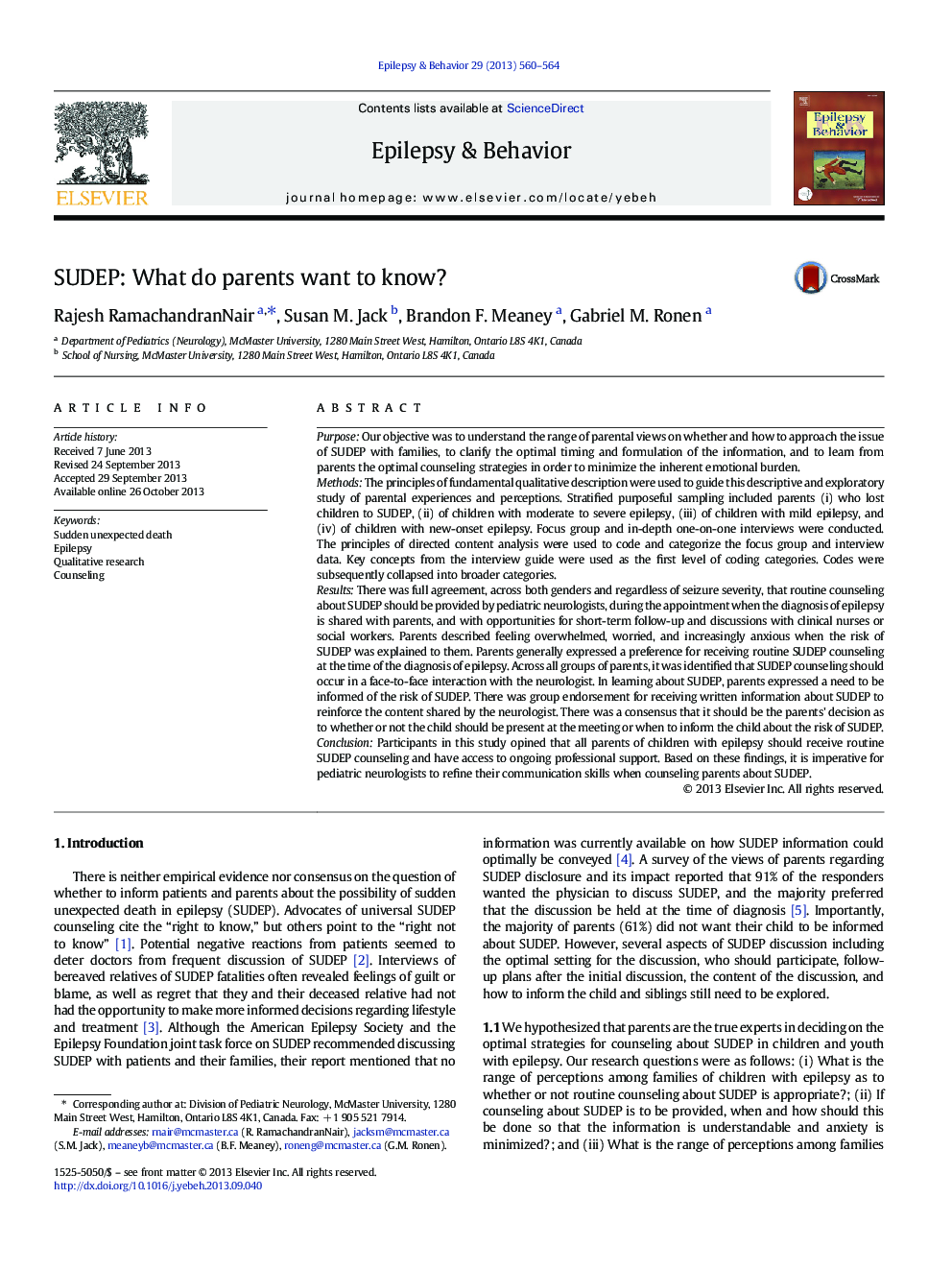| کد مقاله | کد نشریه | سال انتشار | مقاله انگلیسی | نسخه تمام متن |
|---|---|---|---|---|
| 6012679 | 1185904 | 2013 | 5 صفحه PDF | دانلود رایگان |

- Participants in this qualitative study indicated very clearly that parents of children with epilepsy do want to be informed about SUDEP.
- As a general rule, parents indicated a strong preference for the counseling to occur early on, preferably at the first or second clinic visit.
- The content of the counseling regarding SUDEP should include a realistic appraisal of the risk, with an emphasis on the actual prevalence of the condition.
- Knowing the actual low risk of SUDEP was relieving especially to the parents who overestimated the risk.
- Knowledge about SUDEP was unlikely to affect the way they interacted with the child except for enhanced monitoring.
PurposeOur objective was to understand the range of parental views on whether and how to approach the issue of SUDEP with families, to clarify the optimal timing and formulation of the information, and to learn from parents the optimal counseling strategies in order to minimize the inherent emotional burden.MethodsThe principles of fundamental qualitative description were used to guide this descriptive and exploratory study of parental experiences and perceptions. Stratified purposeful sampling included parents (i) who lost children to SUDEP, (ii) of children with moderate to severe epilepsy, (iii) of children with mild epilepsy, and (iv) of children with new-onset epilepsy. Focus group and in-depth one-on-one interviews were conducted. The principles of directed content analysis were used to code and categorize the focus group and interview data. Key concepts from the interview guide were used as the first level of coding categories. Codes were subsequently collapsed into broader categories.ResultsThere was full agreement, across both genders and regardless of seizure severity, that routine counseling about SUDEP should be provided by pediatric neurologists, during the appointment when the diagnosis of epilepsy is shared with parents, and with opportunities for short-term follow-up and discussions with clinical nurses or social workers. Parents described feeling overwhelmed, worried, and increasingly anxious when the risk of SUDEP was explained to them. Parents generally expressed a preference for receiving routine SUDEP counseling at the time of the diagnosis of epilepsy. Across all groups of parents, it was identified that SUDEP counseling should occur in a face-to-face interaction with the neurologist. In learning about SUDEP, parents expressed a need to be informed of the risk of SUDEP. There was group endorsement for receiving written information about SUDEP to reinforce the content shared by the neurologist. There was a consensus that it should be the parents' decision as to whether or not the child should be present at the meeting or when to inform the child about the risk of SUDEP.ConclusionParticipants in this study opined that all parents of children with epilepsy should receive routine SUDEP counseling and have access to ongoing professional support. Based on these findings, it is imperative for pediatric neurologists to refine their communication skills when counseling parents about SUDEP.
Journal: Epilepsy & Behavior - Volume 29, Issue 3, December 2013, Pages 560-564